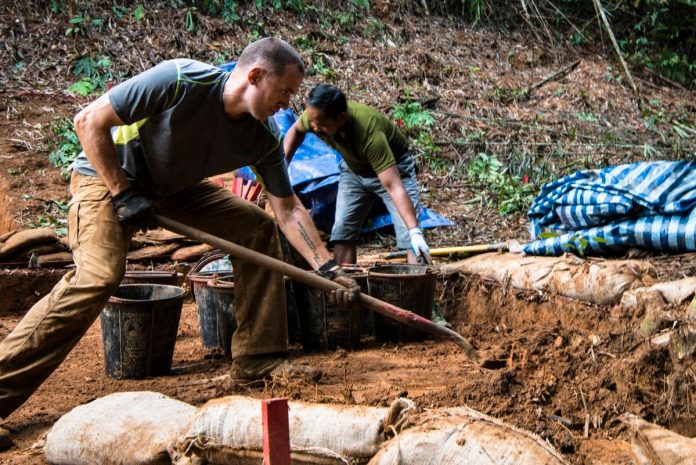Cambodia’s Foreign Ministry has announced that it had offered to resume cooperation in an effort to search for remains of Americans killed during the bloody Vietnam War, resuming a program that ended more than a year ago as diplomacy cooled between the two countries. A row ensued between authoritarian Prime Minister Hun Sen and Washington when Cambodia suspended its POW/MIA programme after the Americans stopped issuing visas after Phnom Penh refused to accept nationals deported from the United States following convictions for various offenses.
Now Hun Sen is willing to resume the search effort with the United States, detailing efforts in a letter Friday to Washington State Senator Doug Ericksen and State Representative Vincent Buys. Cambodia agreed to ”resume this important POW/MIA field mission, regardless of the US visa restrictions now in place.” Questions have surrounded the motivations and credibility of both State Sen. Ericksen and Rep. Buys, who visited Hun Sen in New York while the PM was at the United Nations General Assembly. Many have suggested that the two have been played as pawns of the Hun Sen regime to legitimize the July 29 election.
Earlier in the year, Erickson and Buys, along with a popular football coach traveled to Phnom Penh on a trip to “strengthen cooperation” between the two countries. Critics accused the Erickson, a supporter of U.S. President Donald Trump, of having an extremely poor grasp of the issues, with Erickson having lightly defended the regime, saying “it’s up to Cambodia to make decisions for how they want to run their country and handle their internal politics.” Those decisions included the dissolution of the major opposition political party, the Cambodia National Rescue Party (CNRP), and the imprisonment or exile of its leadership, including Kem Sokha who languished in prison.
There are two issues at play here. One, this is an offensive designed to sway some of the weakest critics of the regime and deflect some international criticism over the handling of Cambodia’s July elections. A spokesman for the ruling Cambodia People’s Party said that the resumption of the programme was a “humanitarian act” that highlighted Cambodia’s respect for human rights. Of course, the political and human rights situation in Cambodia has deteriorated significantly since 2017, including banning more than 100 from political activities and the use of the judiciary to prosecute human rights activists and political opponents, as well as eradicate Western media outlets. If authentic, prisoner of war diplomacy could be a way to thaw relations. The POW/MIA programme was critical to the normalization of relations between the United States and Vietnam, which was key to its own economic revival.
Second, this could be the part of a limited charm offensive designed to signal to some that the regime is ready to back off of its hardline stances toward the West, especially in the face of tough economic sanctions by the European Union. It is not a sign that pragmatism has come to Hun Sen’s CPP, who has acknowledged in part the economic damage that Western sanctions would have on the economy. Cambodian exports to the EU were worth as many as $5.8 billion last year.
Cambodia has said that half of the approximately 80 American soldiers who went missing in Cambodia during the Vietnam War have been found. The American government lists almost 50 personnel still missing as of September 2017.

Mark S. Cogan is an Associate Professor of Peace and Conflict Studies at Kansai Gaidai University in Osaka, Japan. He is a former communications specialist with the United Nations in Southeast Asia, Sub-Saharan Africa, and the Middle East.


